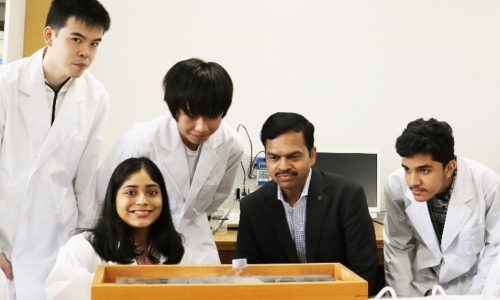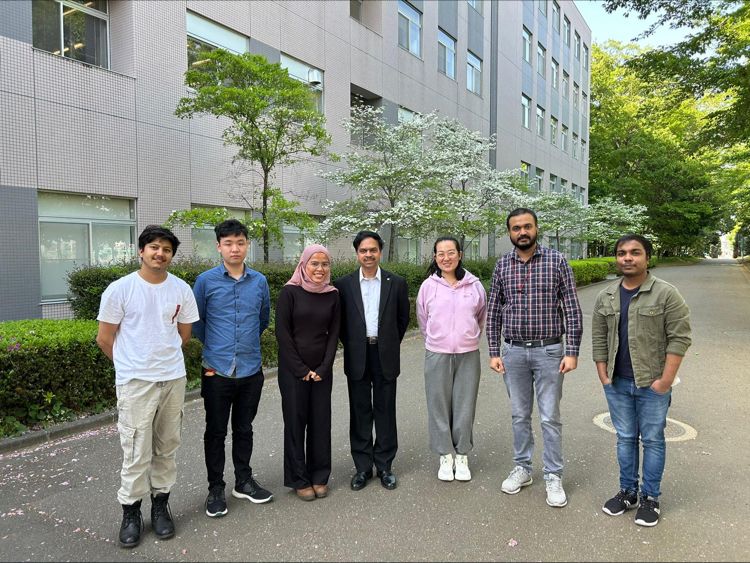(September 18, 2024) When Sahar Mansoor began her zero-waste journey in 2015, she was keen to avoid single use plastic like the plague. This meant shopping from only package free grocery stores or replacing cold medication with hot ginger tea or trying everything to get rid of the plastic wrist band at concerts. It worked wonders as the waste individually generated by her in the next two-and-a-half years could easily fit into a 500ml glass jar. She isn’t that stringent anymore but Sahar still lives a low-impact lifestyle which gave birth to her brand – Bare Necessities – in 2016, “whose crux lies in creating every day necessary products that are entirely zero waste.” Having diverted 155,816 kg of waste from making into landfills, her innovative work gained recognition, with Bare Necessities being named one of the Top 5 Handcrafted in India Brands by Harper’s Bazaar in 2017 and one of Vogue India’s Top 10 Forces of Nature.
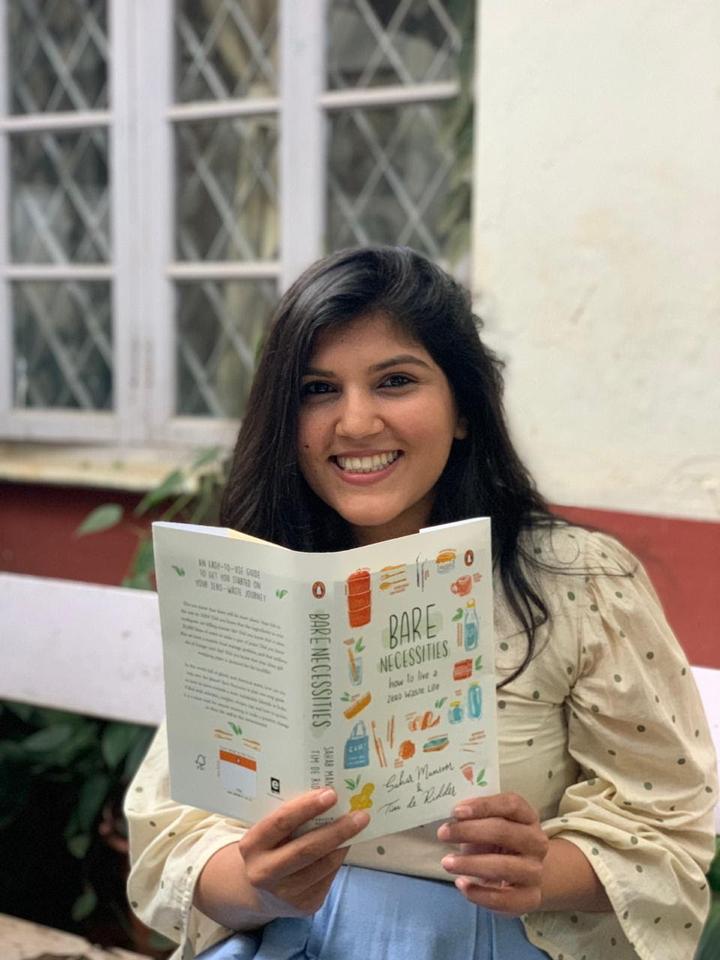
Sahar Mansoor, founder of Bare Necessities
“I wanted to create a company that mirrored the values of zero waste, ethical consumption and sustainability. I wanted to make it easy and accessible for other people looking to consume more mindfully and to encourage others to produce less waste. Thus, Bare Necessities was born,” the social entrepreneur tells Global Indian. But becoming an entrepreneur was never on her mind, instead she wanted to create impact.
Dyslexia – Hard Childhood
Growing up with dyslexia, school was a challenging experience for Sahar. Her reading speed was “as slow as a tortoise,” making it difficult to keep up. “I remember just about finishing reading the comprehension passage as a seven-year-old, when the teacher would say ‘Time is up, pencils down!'” Despite the struggles, Sahar Mansoor found a huge supporter and cheerleader in her mother who was committed to helping her daughter succeed. “She would read chapters of my school books and record them on cassette tapes and when I would come back from school I would practise reading along with my mama’s recorded voice,” recalls Sahar, who is equally grateful to her sister Saba for accompanying her to the local library and helping her with reading. Back by the love and encouragement of a loving family, she overcame her challenges. “Once you train your mind to believe, everything else falls into place.”
Defying odds
But the world wasn’t too kind to her, owing to her learning disabilities. “The first message I got from the world was that I wouldn’t be an academic success in the traditional sense of the word.” But she proved them wrong by getting accepted to Loyola Marymount University in Los Angeles with a partial scholarship. Her tryst with Environmental Planning at the university initiated this romance with sustainability leading her to the University of Cambridge for her master’s in Environmental Policy. Calling it the most intellectually-stimulating year of her life, Sahar recalls it as an eclectic mix of research symposiums, late-nights study sessions and a vibrant social scene filled with “May Balls, lively nights at the bar watching the football world cup and the joy of returning to the warmth of Wolfson after rainy bike rides from classes.”
Tryst with sustainability
At Cambridge, Sahar Mansoor developed a deep understanding of the health and environmental challenges posed by waste. This newfound knowledge opened doors for her at the World Health Organization, where she worked as a mobile health researcher. “It taught me that waste was an environmental issue. However, moving back home made me acknowledge that waste is a social justice issue as well,” says Sahar, who returned to Bengaluru in 2015 to work with SELCO Foundation – a solar energy social enterprise.
During her time there, she worked closely with a community of waste pickers in West Bengal, spending hours shadowing them and witnessing their daily struggles. She was struck by the social justice issues tied to the waste problem. “Every day, thousands of waste pickers segregate broken glass, sanitary napkins and needles with their bare hands. I wanted to stop being part of the problem. My solution was to live a lifestyle that best reflects the values I cared about. I called myself an environmentalist and had studied the subjects, but I needed to live a life more congruent to my environmental and social justice values.”
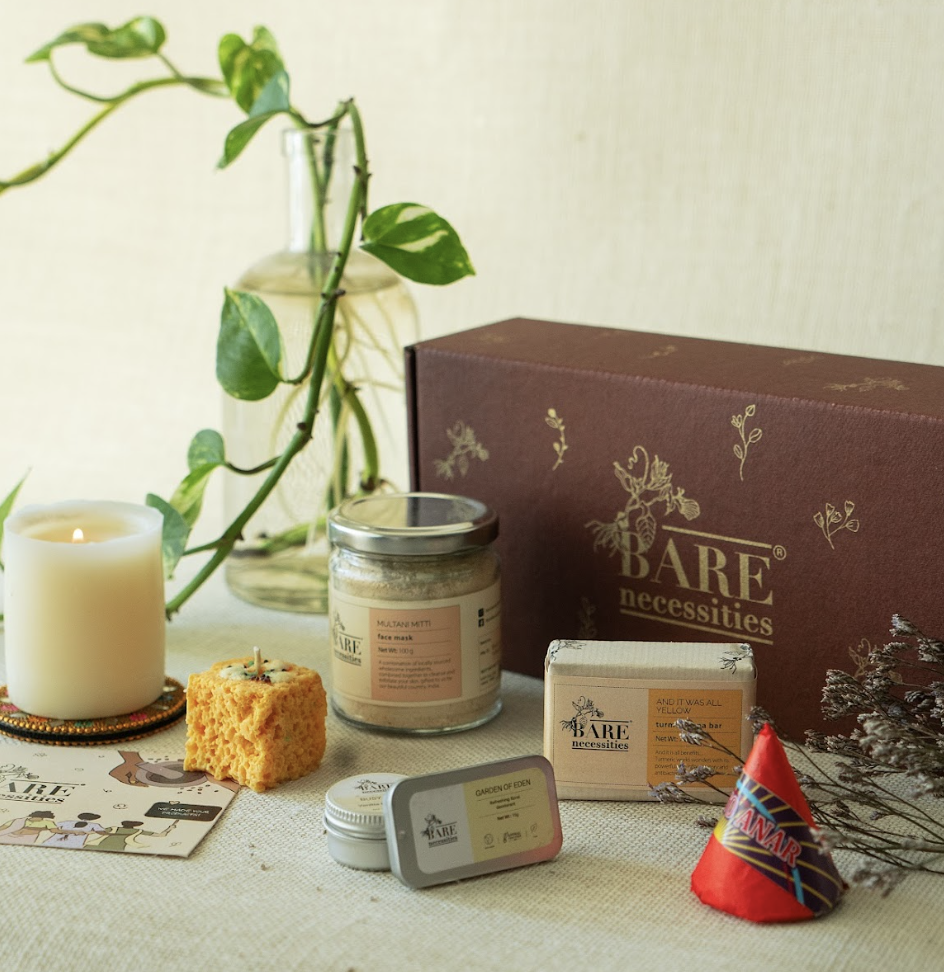
Bare Necessities products
Growing up in Bengaluru, her love for nature blossomed during weekends spent at Cubbon Park with her dad and two sisters, where they would “climb trees and mostly falling off them.” Family vacations meant road trips filled with swimming at the beach, jumping into waterfalls and savouring sunrises and sunsets. However, it was in 2012, during her third year of college, that Sahar’s environmental consciousness deepened. In Professor Chris Chapple’s World Religions and Ecology class, she watched a video of Bea Johnson, an environmental activist known for her zero-waste lifestyle. “I was blown away by her lifestyle.” This was a turning point in her environmental journey, igniting a passion to learn more. After taking up environmental planning as her second major, Sahar dove deeper into understanding the trash problem. “We don’t think of personal trash and attribute it to a larger global problem, we have no control over.”
Zero-waste living
Inspired by Bea Johnson, Sahar Mansoor began her zero-waste journey in 2015, using blogs as her guide. “My grandmother became my ready reckoner. How did my grandma wash her hair before shampoo was sold in plastic bottles?’ she explains, noting that many Indian traditions are rooted in ecological practices, now rebranded as ‘zero-waste practices.’ She describes the transition as gradual, from learning how to make her own soap to recognising that much of what we use is destined for landfills. Determined to make a change, Sahar shifted gears and ventured into entrepreneurship, founding Bare Necessities — a company dedicated to creating zero-waste everyday products. “In my zero-waste journey, I realised we lived in a world with landfill destined products. 4.7 billion toothbrushes land up in landfills every year, and take 200-700 years to start decomposing. So every toothbrush you and I have ever produced is sitting on our planet somewhere.”
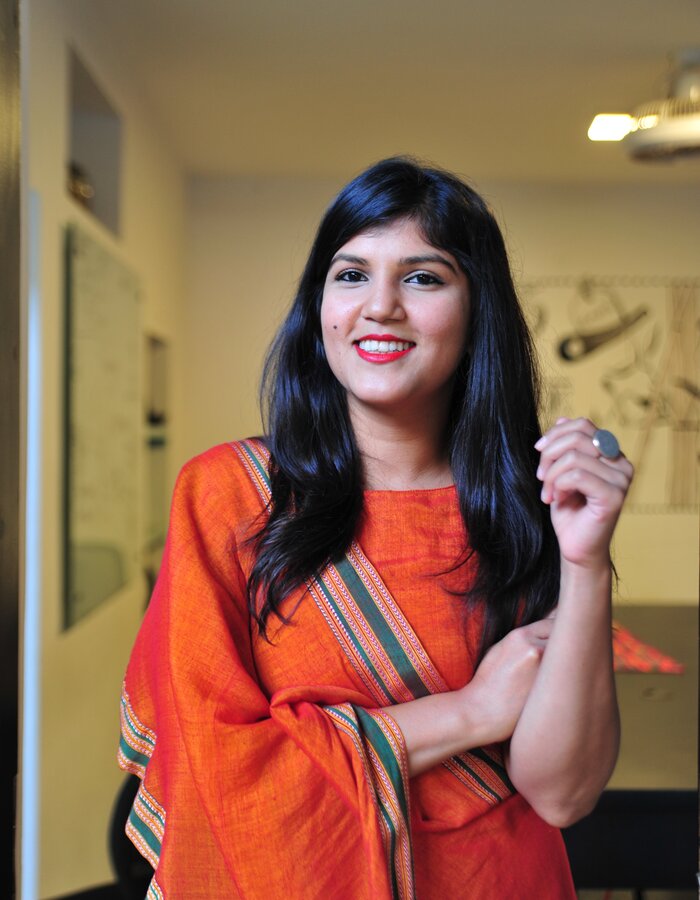
Calling it one of a kind, Sahar reveals that no other beauty company or home care company operates on zero-waste principles. “We take a cradle-to-cradle approach to every product, tackling the waste crisis by offering a holistic solution through everything we create and the services we provide.” What began as a single-woman army with her solely manufacturing, packaging, distributing and marketing the products has now transformed into a brand which over 50+ stores across 10 states and a 20-member team. “You are not born with a fixed amount of resilience. Like a muscle, you can build it up, draw on it when you need it. In that process you will figure out who you really are—and you just might become the very best version of yourself.
Powerful impact
Over the past eight years, Bare Necessities has diverted 155,816 kg of waste from landfills and is on track to prevent 500 kg of plastic waste by 2025. “By creating zero waste alternatives to conventionally toxin formulated and plastic-free packaged personal care products, we are addressing the largest global garbage of our lifetime.” Staying true to its sustainability ethos, the brand offers circular economy initiatives such as the Return Your Jars and Tins Program and Refill Program, encouraging customers to return used jars in exchange for gift cards or to bring their own containers for refills. “We sold a total of 241,805 products, which has saved 68,824,898 single use plastic units from either entering the landfills or into the environment, whether that is into land or waterways,” she proudly shares.
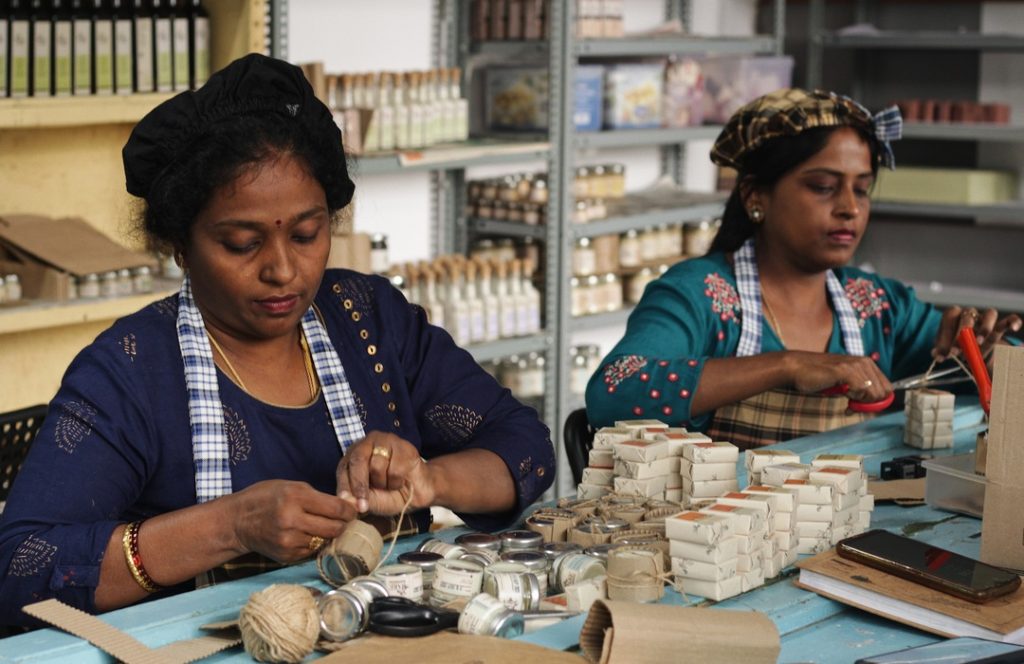
The entrepreneur takes pride in leading a women-driven social enterprise, an idea rooted in her upbringing within an all-female household. After losing her father in a road accident at a young age, she watched her mother step into the role of the family’s breadwinner. At the time, Sahar recalls, “The only jobs available to women were manual labour. My first thoughts were, ‘What job would my mum get? Would she have to clean houses too?'” This experience planted the seeds for her desire to create meaningful and fulfilling career opportunities for local women.
It was while volunteering in Jamaica, Congo, and Guatemala that Sahar truly understood the power of women coming together. “These experiences inspired me to build a strong, women-led manufacturing team, largely composed of underserved women,” she explains. This commitment to uplifting women has been a cornerstone of her enterprise, which champions not only sustainability but also social empowerment.
Though sustainability is often linked to high price tags, Sahar Mansoor believes that Gen Z is becoming more mindful and asking manufacturers the right questions. “‘What’s in my products? The emerging conscious millennial population wants to align itself to certain causes by virtue of its consumption choices,” she explains. Sahar adds that these consumers are increasingly choosing to support the local economy and are recognizing the value of long-term benefits over short-term gains. “They are making more thoughtful decisions, understanding the impact of their choices on the environment and society.”
Accountability and future road
Over the years, Sahar has come to realise that the lack of awareness about the importance of waste segregation at home and responsible disposal has negatively impacted informal waste pickers, leaving them vulnerable to health issues. “Integrating them into a formal system with proper training and support is crucial,” she emphasises. While Sahar sees zero-waste products as a key solution to the waste crisis, she is equally committed to raising awareness about sustainability and zero-waste living. Through talks and workshops, she actively advocates for more responsible waste management practices.
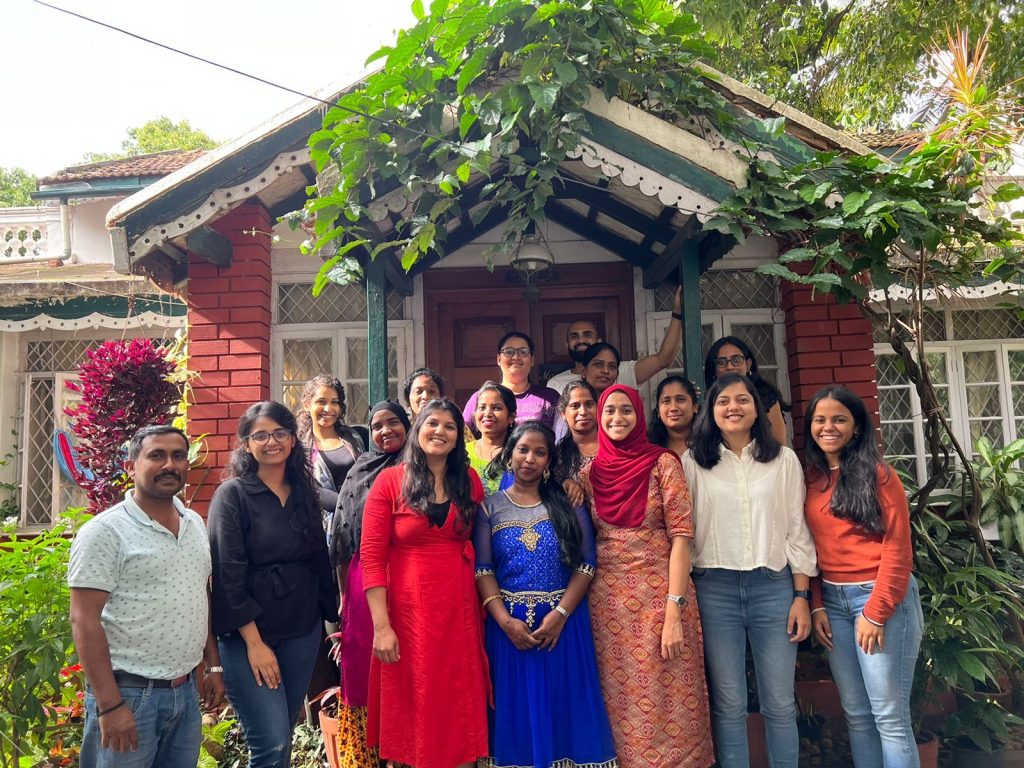
In the near future, Sahar envisions Bare Necessities as an interdisciplinary hub—a space where product designers can create with a cradle-to-cradle philosophy, and policy analysts collaborate with local governments to recommend waste management strategies and reduction policies. “A place for behaviour economics, ecologists, researchers and consumers alike to build the ecosystem towards a circular economy,” she says, aiming to drive a holistic approach toward sustainable living and waste reduction.
Sahar has become a force to reckon with in the last few years, driven by the belief that people connect not only with her brand but also with her personal journey. “I think it’s important for me to candidly share my lessons, learnings, findings and failures along the way so that others don’t make the same mistakes that I did or still do!”

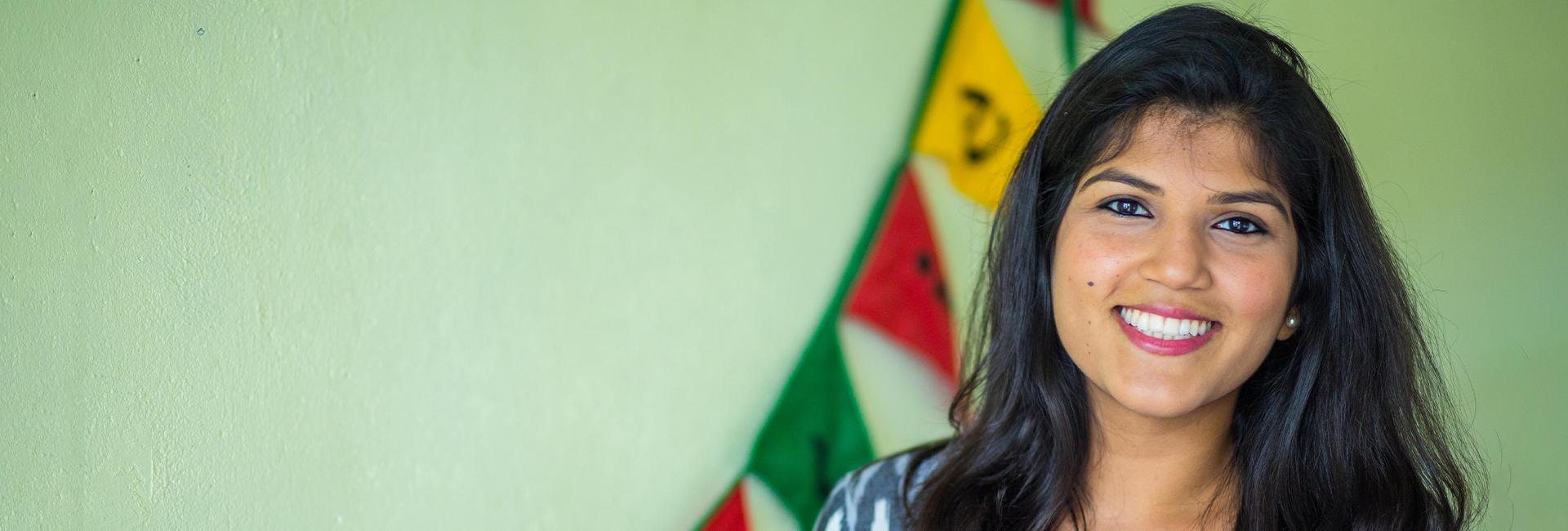

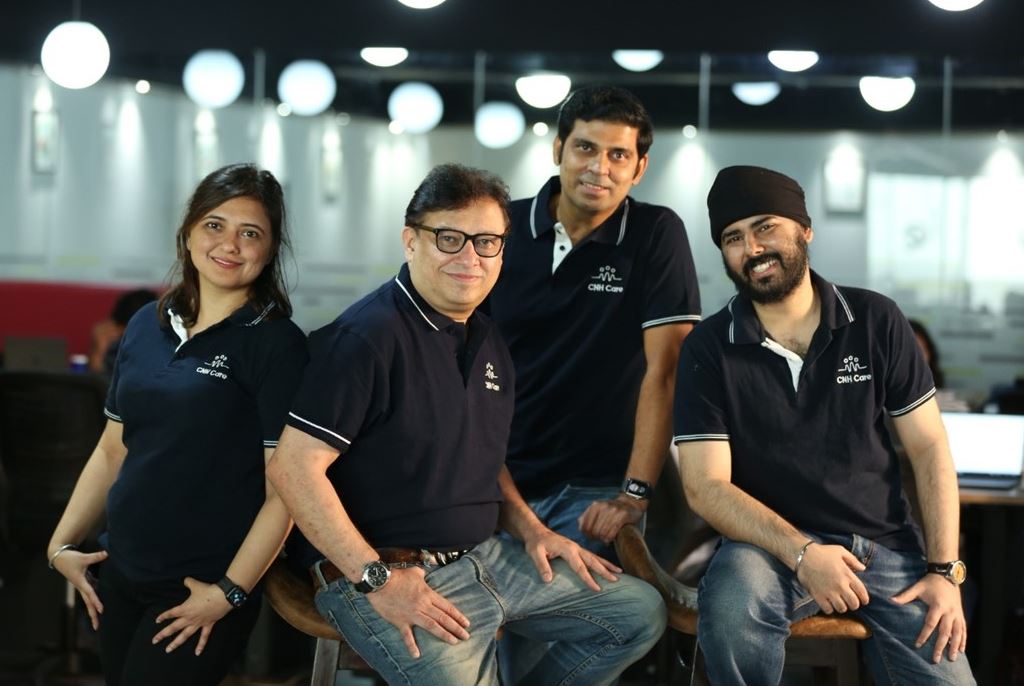 Galveender Kaur, Sanjay Vinayak, Prashant Kashyap and Elwinder Singh, founders, Connect & Heal | Picture courtesy: Business World[/caption]
Galveender Kaur, Sanjay Vinayak, Prashant Kashyap and Elwinder Singh, founders, Connect & Heal | Picture courtesy: Business World[/caption]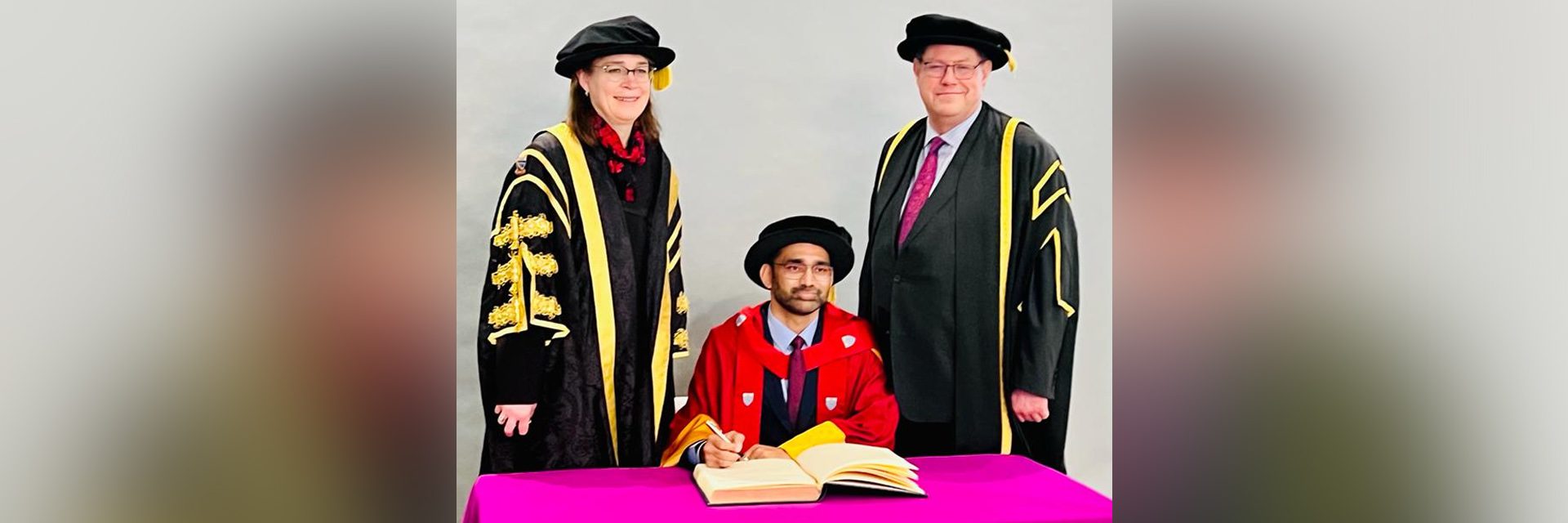
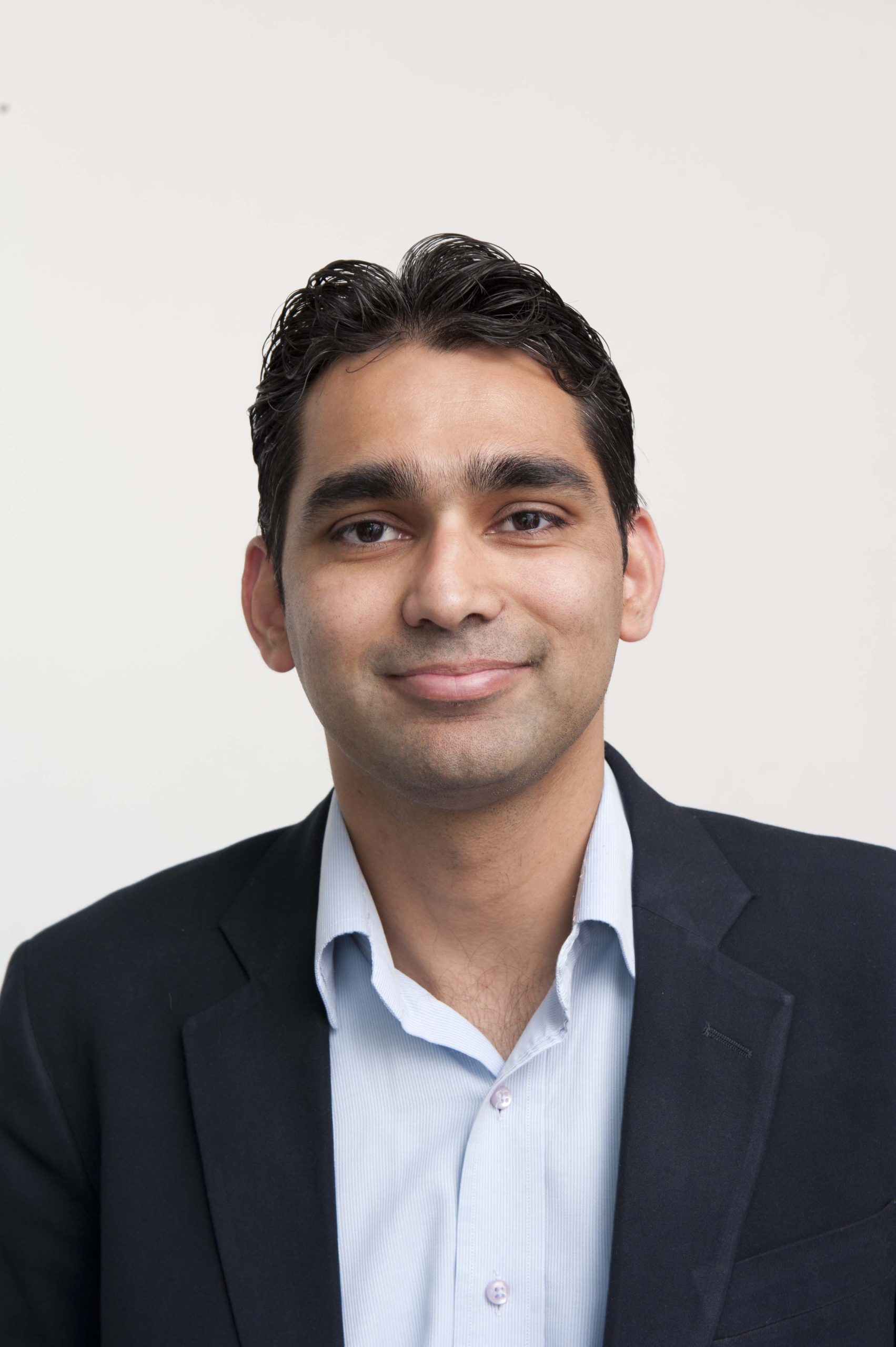 Gaurav Brahmbhatt[/caption]
Gaurav Brahmbhatt[/caption]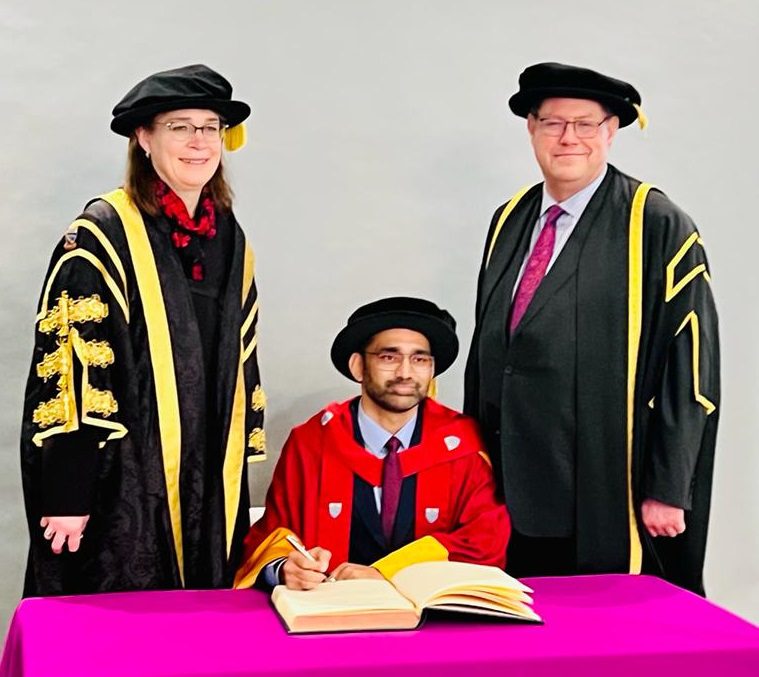 Gaurav receives his honorary degree from Aston University[/caption]
Gaurav receives his honorary degree from Aston University[/caption]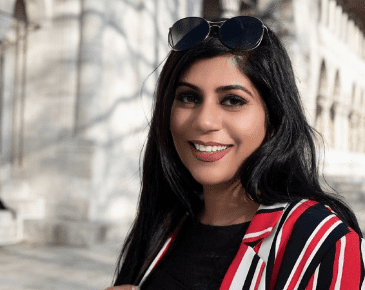
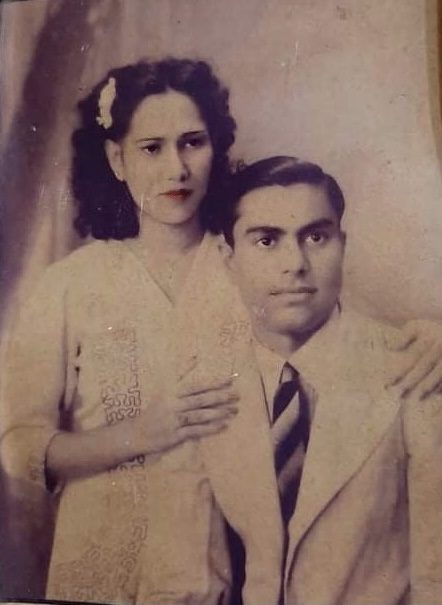 Ann D'Silva's grandparents[/caption]
Ann D'Silva's grandparents[/caption] Ann D'Silva's book cover[/caption]
Ann D'Silva's book cover[/caption]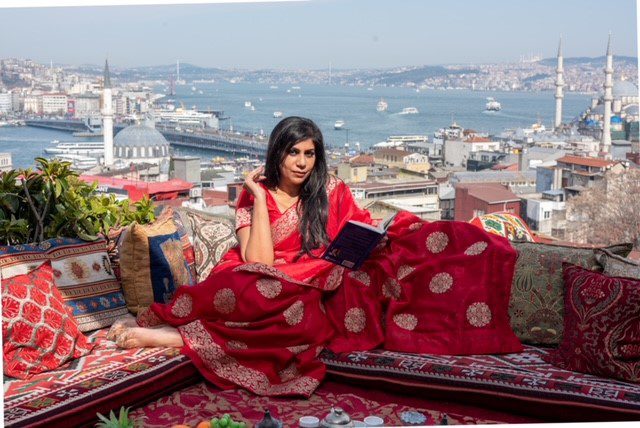 Ann D'Silva in Istanbul[/caption]
Ann D'Silva in Istanbul[/caption]
 Dr Anurup Mitra and Antara Sarkar[/caption]
Dr Anurup Mitra and Antara Sarkar[/caption]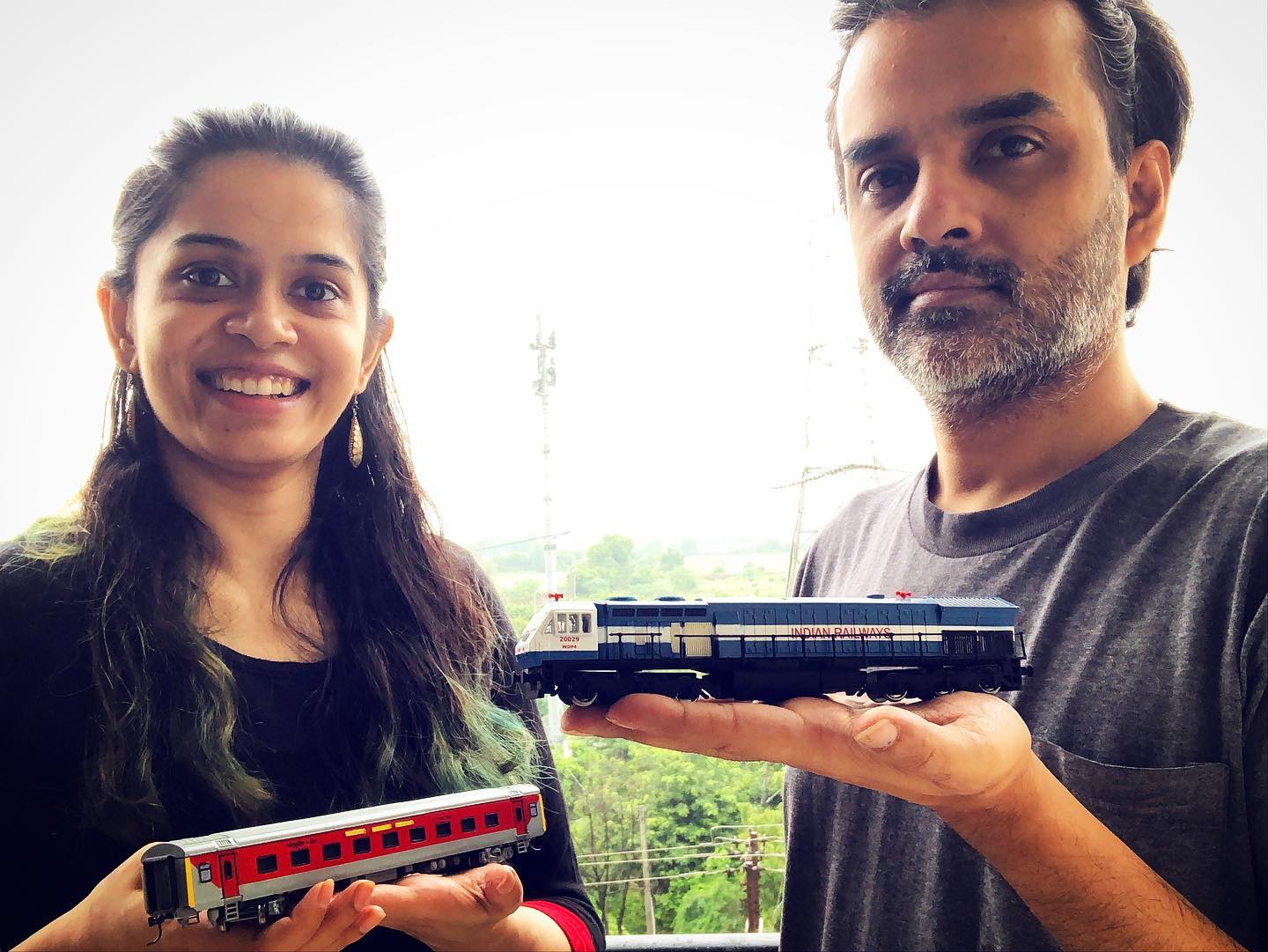
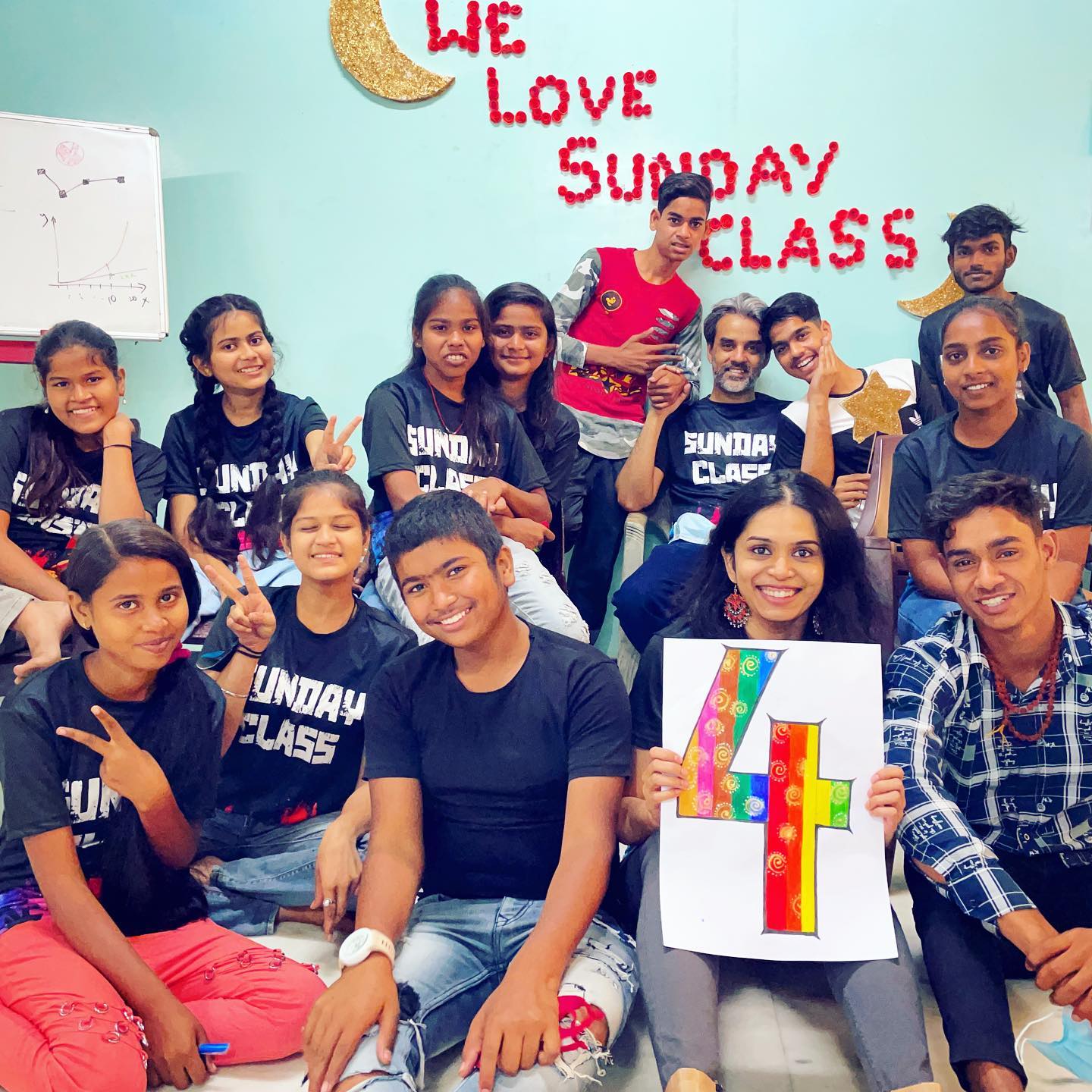

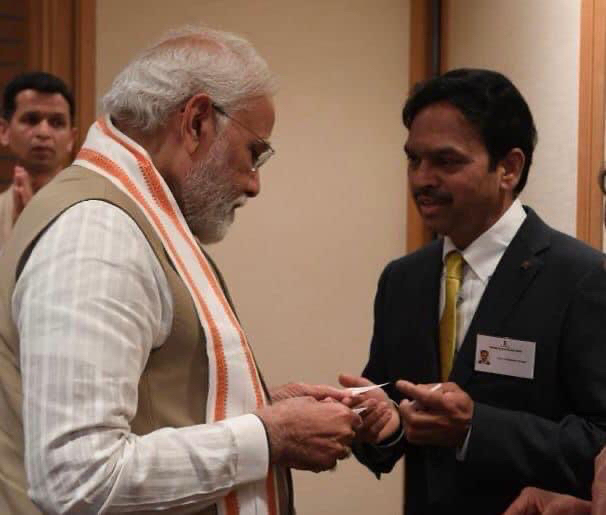 Prof Miryala with PM Narendra Modi[/caption]
Prof Miryala with PM Narendra Modi[/caption]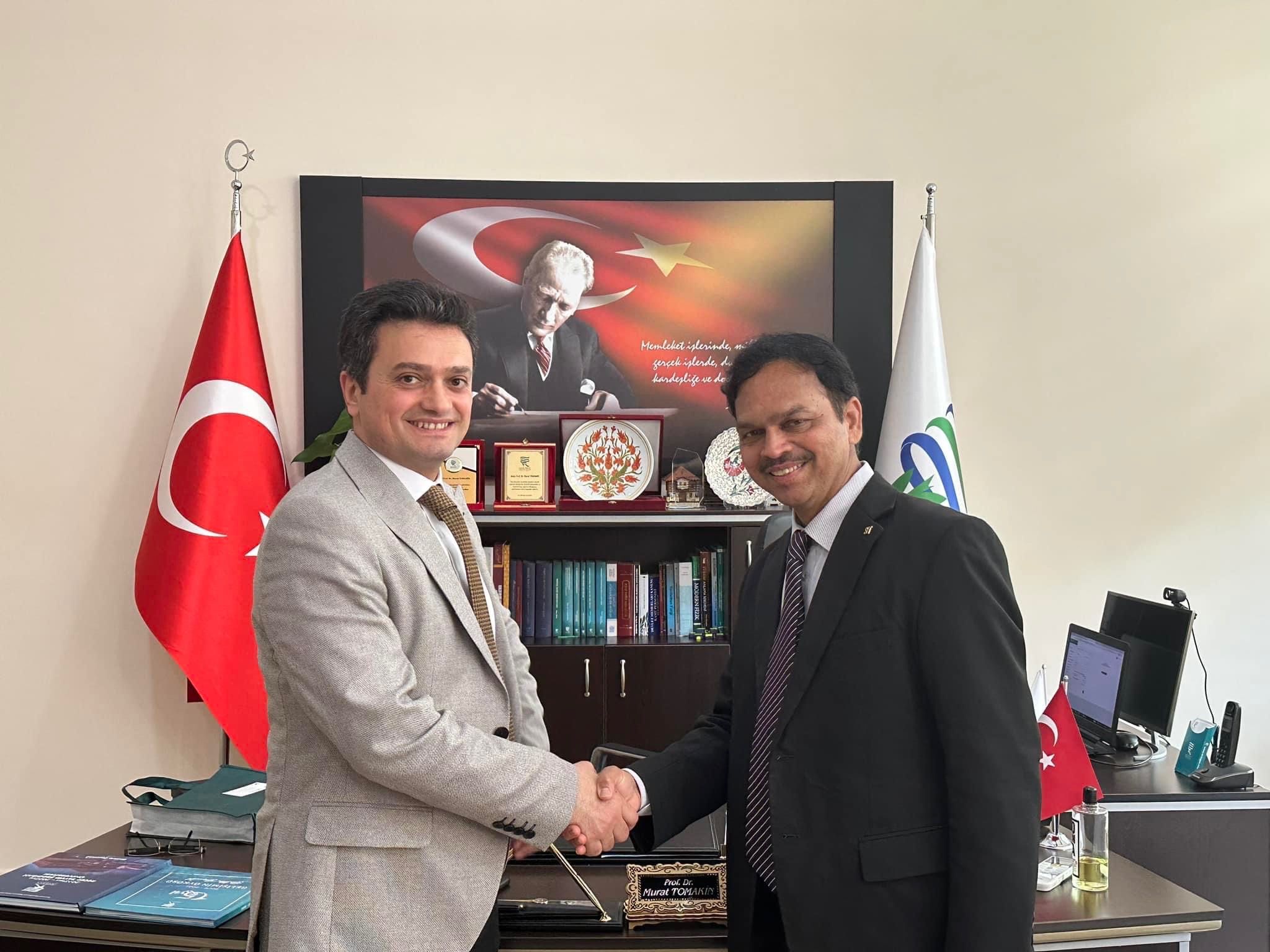
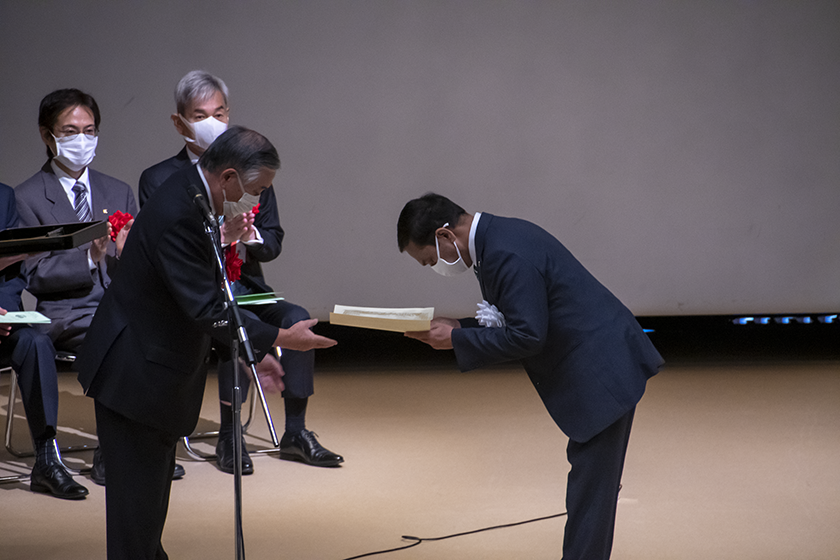 Prof Miryala being honuored by the SIT Chairman’s Award[/caption]
Prof Miryala being honuored by the SIT Chairman’s Award[/caption]